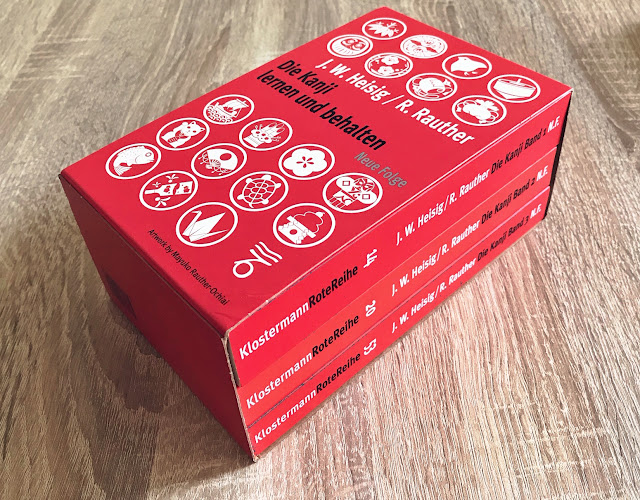Accepting Imperfection
I know many examples of people who learned my native language German. One example is a former classmate of mine who came from Russia. She learned German while living in Germany mostly by talking to native speakers. Then there is a historian who often speaks in documentaries and describes historical events. These two, as well as many other people, are 100% fluent. They can talk about almost everything without a problem. As a native speaker, I think they speak excellent German. Did I confuse them with a native speaker?
No. Maybe for a second, but the longer I listened I always noticed things that are not native-like. Maybe there are people who always sound like a native, but all examples I know are not perfect.
Is perfection necessary?
Does perfection even matter? Definetely not. I mean, if you are someone who thinks that you need to reach native-level and that no mistakes are allowed, try to change the perspective. Look for examples of people who speak your native language very well. People who learned the language as teenager or adults and now live and work in the country and use the language every day. Listen to them and ask yourself: What do you feel when you hear them talking? What do you think about them?
In my case, I never thought "Ugh, his German is good but he makes mistakes — terrible!“ or something like that. I don’t know what people who are obsessed with perfection think what natives could think of them, but whenever I noticed that someone who speaks German is not a native speaker I was always impressed how good their German is. I could hear that they are not native speakers, yes, but this was never a negative thing to me. My classmate from Russia, for example, had a very unique way to speak. It was clear non-native, but I liked the sound. It made her interesting. And the more I learned about her, it turned out that she is really an interesting person. We became friends.
I really don’t know why some people are so obsessed with trying so hard to sound exactly like a native. Don’t get me wrong, of course accuracy is important. Of course you should give your best. The less mistakes you make and the better your pronunciation is, the easier it is for native speakers to understand you.
High expectations
But I think that it is unnecessary — maybe even unrealistic for most people — to really sound like a native. Maybe there are people who learned the language at a very young age who have no accent. Or some people have a special talent which enables them to speak (almost) accent-free. Or they learned under rare or special circumstances. Or they learned the language for many many years and continuously worked on their weak points. People who speak at a native level exist, but at least all people I know, who learned my native language as a teenager or adult, don’t speak perfectly. And they don’t need to.
What I want to say is: try your best but don’t put so much pressure on yourself by creating such high or even unrealistic expectations (like: "I need to sound exactly like a native. No mistakes allowed. Otherwise I failed.“). Sounding a bit non-native is no problem at all. I think most native speakers don’t care. On the contrary: I think many people find a slight accent interesting or charming. It is part of your identity, your personality. It makes you unique and therefore interesting to others. That’s why I don’t see a reason to worry more than necessary about sounding exactly like a native.
I think it is better to relax and focus more on enjoying your target language than desperately trying to convince native speakers that you are one of them. (Which is ridiculous, because they probably will know it after your first few sentences anyway.)
Nobody should be afraid of making mistakes.
Please note, that this is just my personal opinion. If sounding like a native is really important to you, I respect that, of course. It's ok to give your best and of course it's important to pay attention to correctness. I'm just a bit skeptical if striving for perfection is even worth it. Some language learners are very serious about this. At some point, this obsession can become even toxic, which is definitely not a good thing. That's why I think that language learners should be a bit careful. Whatever your goals are, I think they should be realistic. Otherwise too high expectations can do more harm than good.
This is not either / or. No black or white. It's not that you are either perfect or a failure, if you make even a small mistake or if your pronunciation is not 100% native-like.
Most native speakers are more forgiving than you think. Like I said, small mistakes or a slight accent is no problem and absolutely normal. Even though someone speaks not perfectly, most native speakers are impressed.
Diminishing returns
It's not that you can't improve, of course: You can ask a native speaker to give you feedback, for example, and work on one thing at a time. Maybe a native speaker tells you that you pronounce certain words with an accent. Now you can concentrate on these words and work on your pronunciation. All these little corrections can take a lot of time. Native level might be possible, but from what I know, reaching a level at where you speak exactly like a native may take more time and effort than you think.
At some point, your progress is very slow and even if you work hard to correct your weak points, the benefit may be not that great. If you are already very good, most natives probably won't notice that your pronunciation got a little bit better. At this level, the effect (benefit) is not as great as in the levels before. Everyone needs to decide for themselves, if reaching native level is worth it or not.
No matter how well you speak a language, what really matters in the end is your personality, what you do and what you say. Relax and be yourself. In the long-term, being authentic and honest is better. Making mistakes is natural. You are a human being after all.


Comments
Post a Comment